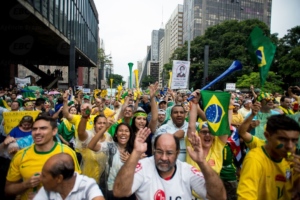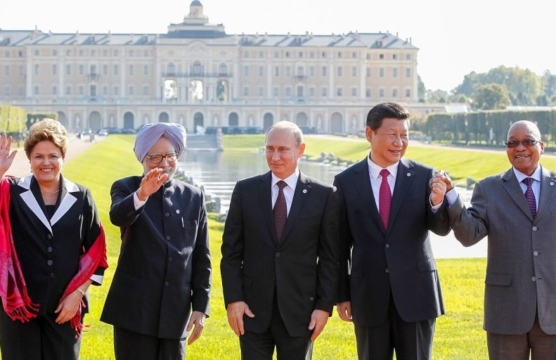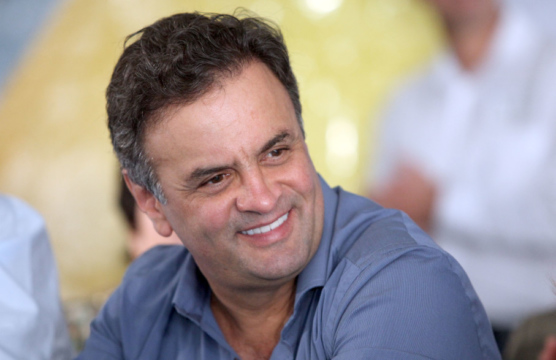
World Cup Focuses Chinese Media Attention on Brazil
Chinese media attention focused on Brazil and the World Cup in June.
Casimiro Ribeiro, one of the good professors I had at Faculdade Nacional de Ciências Economicas, used to say: “The Brazilian situation is hopeless, but not serious.” Today, the country’s situation could be better described as serious, but not hopeless.
Indexes recently released by the Getulio Vargas Foundation (FGV) and the National Confederation of Industry (CNI) indicate a remarkable decline in general confidence levels. The degree of pessimism is higher than any time in recent decades. Furthermore, Dilma Rousseff’s approval ratings are the lowest for any Brazilian leader since the transition to democratic rule.
Is this lack of enthusiasm regarding Brazil’s near term prospects justified? Unfortunately, yes — for many reasons.
The country’s weak economic environment, the constitution’s limitations on the government’s ability to cut spending, and the inability of policymakers to reach consensus have all but paralyzed Brazil’s leaders.
While the economic troubles facing Brazil today don’t yet compare to the 2007-2008 financial crisis, one could very well argue that Brazil is indeed enduring a perfect storm and bracing for a hostile spring.
The economy is in recession. Initial projections suggesting a resumption of GDP growth by the fourth quarter of this year have been scrapped. A continued recession is now anticipated for the rest of 2015 as well as for 2016. Equally as concerning, inflation has stabilized at 9.5% — the highest rate since February 2003. It shows no sign of soon reaching the Central Bank’s target rate of 4.5%. To the contrary, the Bank has been forced to raise the benchmark SELIC interest rate to 14.25% — the highest level in more than three years — and has indicated that it is prepared to maintain rates at these levels despite the negative economic outlook for 2016. Partly as a result, demand for credit has collapsed and banks are cautious to extend loans, even at prohibitively high rates.

On the fiscal side, the state of public accounts remains a major concern. The country’s weak economic environment, the constitution’s limitations on the government’s ability to cut spending, and the inability of policymakers to reach consensus have all but paralyzed Brazil’s leaders. On September 9, Standard & Poor’s downgraded Brazil’s credit rating to junk grade, further hampering President Rousseff’s hopes to regain investors’ trust and pull the economy out of recession. Soon after, the federal government announced an emergency BRL 66 billion (USD 26 billion) budget cut package and tax increases aimed at warding off further credit rating downgrades. Given the initial reactions and objections of some members of Congress, many of whom dismissed the proposed measures as “too little and too late,” approval will surely prove difficult.
Like most developing economies, the stock market has also performed poorly, trending negative the past three years. The disappointing results of leading domestic companies have had a real impact on the Bovespa index, the most important performance indicator of Brazil’s stock market.
Moreover, in the last 12 months the Brazilian Real has plummeted, reaching its lowest value against the US dollar since 2002. This devaluation reflects mainly two factors: the general appreciation of the US dollar relative to most currencies in the world, and the dismal state of the Brazilian economy.
Finally, on the social front, Brazilians are dissatisfied with rising living costs and a broad array of unaddressed social grievances that have accumulated over recent years. This dissatisfaction was evident in the number of anti-government protests, mostly over poor public services, corruption scandals, and the perceived general incompetence of policy makers and the political class at large.
The crisis has severely tarnished the credibility and reputation of Brazil’s president as well as that of her mentor and predecessor, Lula da Silva, and their party, the PT. Although members of the opposition have called for her impeachment, none of the arguments presented thus far seem sufficient to sustain an impeachment process. Still, it is hard to believe that only ten months ago, Rousseff captured 40 million votes in the nationwide race that resulted in her election to a second four-year term.
The chaos may be inspiring a tectonic shift in the culture and politics of Brazil. For years, Brazil has been derided as economically and politically compromised, with low ethical standards and a high tolerance for corruption and misdeeds. Recent protests, however, suggest that the electorate’s patience is running out.
Yet there might be a silver lining to Brazil’s gloom. The chaos may be inspiring a tectonic shift in the culture and politics of Brazil. For years, Brazil has been derided as economically and politically compromised, with low ethical standards and a high tolerance for corruption and misdeeds. Recent protests, however, suggest that the electorate’s patience is running out. Citizens are leveraging social media to better express and organize themselves. If supported by positive leadership, this new attitude can help legitimize anti-corruption movements and convert them into powerful instruments of democratic expression and change.
Although the loss of investment grade status imposed by S&P certainly aggravated Brazil’s economic situation, the crisis has also forced the executive and Congress to work together to reduce the public deficit and improve the quality of governance.
Perhaps more importantly, in March 2014, Brazil’s Federal Police launched its Lava Jato (car wash) investigation, which exposed a corruption scandal of epic proportions: a scheme designed to embezzle assets from the crown jewel of the country’s economy, Petrobras. Several of the company’s directors, senior government officials, political parties, and some of the country’s largest construction companies and their officers have been implicated in the affair and sentenced to prison. Because of Lava Jato, large sums of money are now returning to Petrobras’ bank accounts, an unprecedented event for Brazil’s economic history. Although the process is far from over, the investigation is likely to transform the way business is conducted in the country going forward.
Brazil needs to evolve beyond its short-term challenges. Many of the structural reforms remain paramount. This is the right time to act and to do “the things that must be done,” despite the lack of popular support. This challenge constitutes a decisive test for the still young Brazilian democracy and for its institutions. While it will take time and require courage to make the hard choices, I am confident that this country will emerge from this process better and stronger.
Chinese media attention focused on Brazil and the World Cup in June.
The creation of the New Development Bank, also known as the BRICS bank, was announced at the BRICS summit in Brazil.
In the lead-up to Brazil’s presidential elections, Chinese media reports have offered varied perspectives on China-Brazil relations.

